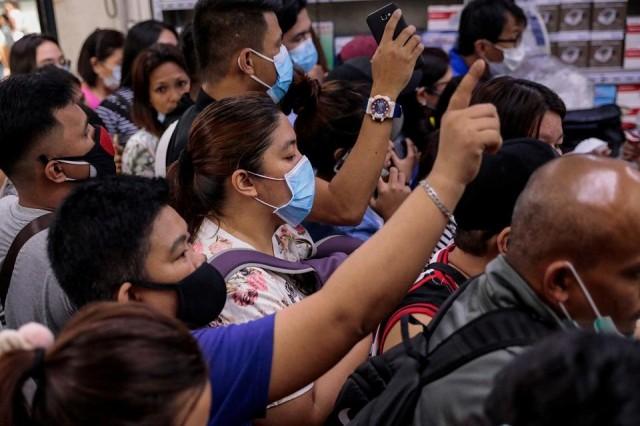WHO warns: Masks may give false sense of security, lead to neglect of proper hygiene

The World Health Organization (WHO) warned against a "false sense of security" that wearing a face mask may bring, and stressed that proper handwashing and hygiene must not be neglected in the fight against the 2019 novel coronavirus.
At Tuesday's Senate hearing on the issue, WHO Representative to the Philippines Dr. Rabindra Abeyasinghe said that health experts' message is to "be rational about the use of masks."
"Factually, it shows that [among] non-symptomatic people, using masks will give them a false sense of confidence and put them at more risk because they tend to wash hands less," he said.
WHO has provided a detailed guide on the proper handwashing technique.
In an advisory issued on January 29, the global organization stressed that using face masks alone are insufficient to provide the "adequate level of protection."
"If masks are to be used, this measure must be combined with hand hygiene and other IPC [infection prevention and control] measures to prevent the human-to human transmission of 2019-nCov," it said.
"Wearing medical masks when not indicated may cause unnecessary cost, procurement burden and create a false sense of security that can lead to neglecting other essential measures such as hand hygiene practices," it added.
"WHO has clearly provided and shared information on the use of masks. We don't see a benefit of masks to be used by the general public," Abeyasinghe said.
The organization, however, also reminded individuals with respiratory symptoms to wear masks and seek medical care if experiencing fever, cough and difficulty in breathing.
"We continue to advocate that people who are having respiratory symptoms, people who are dealing with large numbers of the public who are exposed to possible risk, who are in crowded places, could be wearing those masks at those times," Abeyasinghe said.
"But it would be preferable to wear those masks for high-risk individuals, including health workers. This is important now if we are to prevent secondary transmissions especially from PUIs [persons under investigation] and in the outpatient department of hospitals," he added.
Using masks
WHO also stressed that the improper use of masks "may hamper its effectiveness to reduce the risk of transmission."
WHO provides the following details on the proper wearing and disposal of masks:
- place mask carefully to cover mouth and nose and tie securely to minimize any gaps between the face and the mask;
- while in use, avoid touching the mask;
- remove the mask by using appropriate technique (i.e. do not touch the front but remove the lace from behind);
- after removal or whenever you inadvertently touch a used mask, clean hands by using an alcohol-based hand rub or soap and water if visibly soiled;
- replace masks with a new clean, dry mask as soon as they become damp/humid;
- do not reuse single-use masks;
- discard single-use masks after each use and dispose of them immediately upon removal.
The Philippines has so far confirmed two cases of the 2019-nCoV ARD. One of the patients died on Saturday—the first death outside China.
The first confirmed case, a 38-year-old Chinese woman, was the partner of the 44-year-old Chinese man who died. She said they had visited Cebu and Dumaguete prior to being quarantined.
Earlier, the Department of Health said that eight out of the 70 people being tracked down for having been in contact with the Chinese couple are exhibiting coughs and colds. — Ma. Angelica Garcia/BM, GMA News



